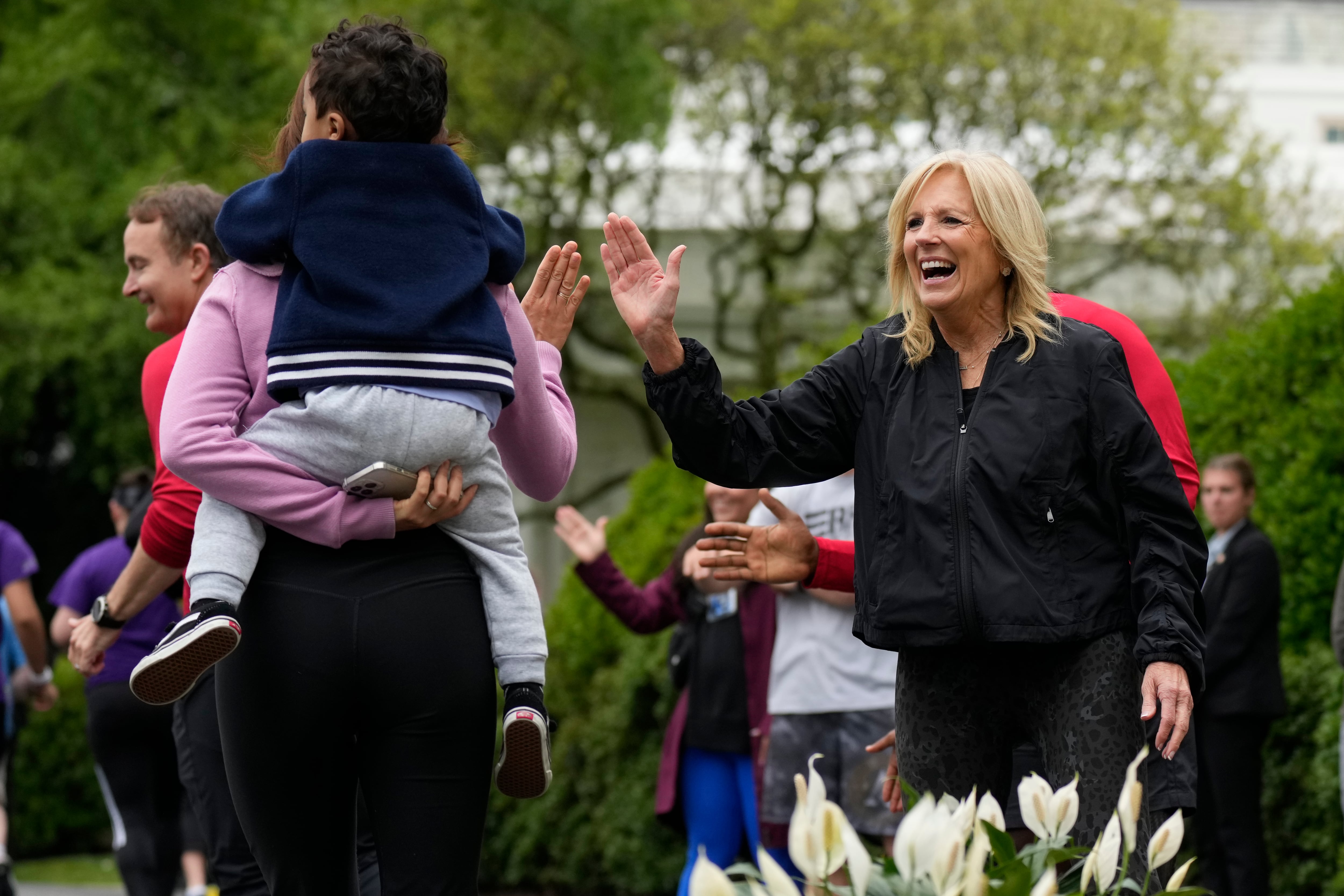Jill Biden welcomed military families to the White House lawn Saturday for a workout complete with jumping jacks and push-ups to highlight the sacrifices children make when their parents decide to serve.
“Sharing a workout might seem like a small thing,” the first lady, who was joined by Veteran Affairs Secretary Denis McDonough, said to the crowd. “But when it comes to honoring our military, and veteran families, caregivers and survivors, it’s often the little things that make a difference.”
The event was the latest in a series hosted by the first lady as part of Joining Forces, her White House initiative to support military and veteran families, caregivers and survivors.

Also this month, she opened a temporary art exhibit at the White House to help educate visitors about the lives of military children.
The display of 10 mini “suitcases” designed by military and veteran children reflects their lives of frequent moves. Some of the cases are adorned with depictions of the flags of the countries they have lived in as a result of their parent’s deployment.
Biden is the daughter and mother of military service members and she often notes that military children also serve even though they aren’t in uniform.
“It’s nice to have somebody who can sympathize with family being away,” Air Force Lt. Colonel Robert Clark, who came to the White House with his wife and kids, said about the first lady. “Then also just doing events like this where we can come out and be around other military families. That’s great for us.”
There are more than 2 million military-connected children of active-duty service members, National Guard or reservists, or veterans, the White House said. They move an average of six to nine times during their K-12 education, and change schools three times more than their civilian peers.
Associated Press writer Darlene Superville contributed to this report.





